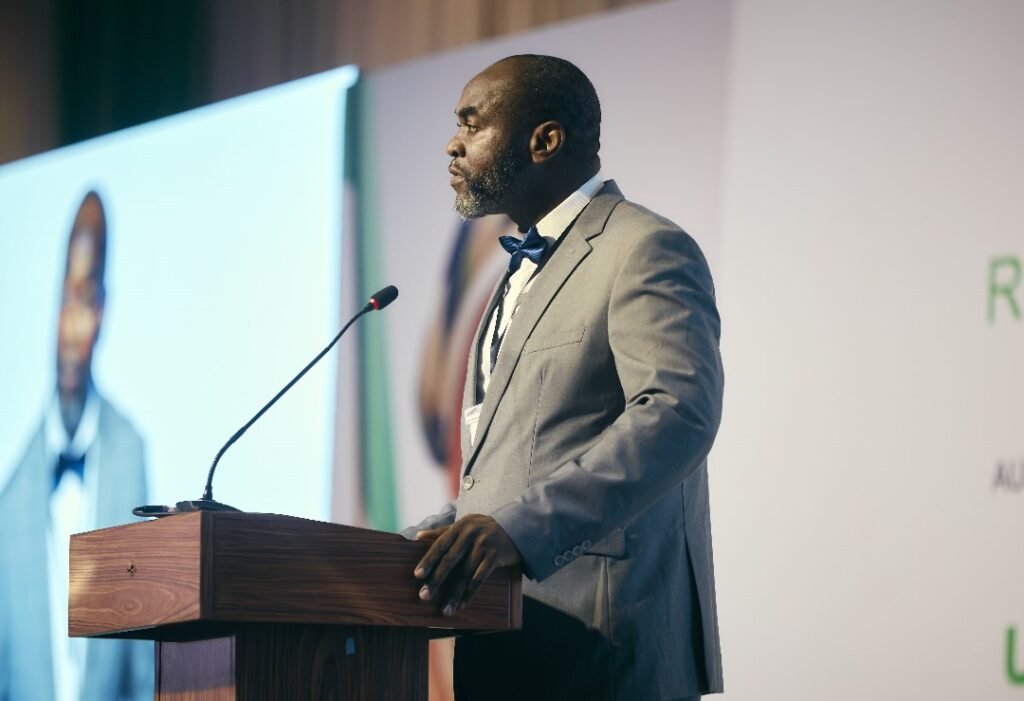Between Artificial Intelligence and the rest of us by Mahfouz A. Adedimeji

Courtesy of the hindsight and foresight of the dynamic Vice Chancellor of the University of Ilorin, Prof. Wahab O. Egbewole, SAN, what has not happened since the past 36 years occurred again at the better by far university on October 9, 2024. That was the day the University hosted the 2024 University of Ilorin Lectures, which featured the 8th Vice-Chancellor of the University and current Registrar of the Joint Admissions and Matriculation Board (JAMB), Prof. Is-haq Olanrewaju Oloyede, CON.
The choice of the lecturer and the topic could not have been better made as the University Auditorium was filled to the brim with the town and the gown united by the purpose of drawing from the profound insights from “Artificial Intelligence and the Future of the Humanities”. To say that the topic is apt, relevant, thematic, timely and thought-provoking is to say the obvious as this is the age of the new AI. And for the topic to be treated by Prof. Oloyede, who President Bola Ahmed Tinubu describes as “an uncommon scholar, exceptional administrator”, a humanist whose passion for innovative technologies has impacted on the Nigerian university system, is to put a round peg in a round hole.
The lecture actually removed the scales from the eyes of the vast majority. This is because for many people, Artificial Intelligence is another catchphrase that has caught the attention of the global knowledge industry and the term evokes anxiety, excitement, befuddlement, curiosity and palpitation. But the lecturer made it clear that AI is an indisputable reality of the day and the right attitude is to understand and master it for ethical use because those who ignore it will be left behind. It is part of this understanding that would negate the misconceptions which the lecturer identified as AI being a new technology, being equal to Human Intelligence, replacing humans and being all the same. In other words, it is established for all that AI is not a new technology, it isn’t the same as human intelligence, it won’t replace humans and it isn’t all the same.
Defined as the simulation of human intelligence processes by computer systems, Artificial Intelligence relies on such processes as learning (the acquisition of information and rules for using it), reasoning (using rules to reach approximate or definite conclusions), and self-correction, which can all be situated within the realm of the Humanities. The term was first coined by John McCarthy in 1956 during the Dartmouth Conference, a founding moment of AI as a field of study, and it has passed through different phases or eras before its current era of Deep Learning and Natural Language Processing. Now, AI simulates human intelligence and uses algorithms, machine learning and data analysis which manifest in chatbots and virtual assistants, self-driving cars, image recognition software and intelligent robots.
As Prof. Oloyede revealed to the enraptured audience, while AI has huge opportunities, it is dogged by serious problems bordering on ethical challenges, potential embarrassment due to wrong information, social distraction, over-dependence and erosion of critical thinking skills, which results in laziness, reduced cognitive engagement and failure in case of automation breakdown. There are also challenges in our clime regarding lack of infrastructure, widening of the digital divide and the risk of AI-driven data exploitation that manifests in data harvesting by global powers, data exploitation, exclusion from participation in global AI development, docility and fragmentation of some strategic African Organisations.
It is apposite that coping with the challenges associated with AI requires an interdisciplinary method, which according to William A Sadler, Jr., “is not merely interesting and relevant but is also intrinsically important and necessary when it comes to understanding man.” It is agreeable that “there is no better time to understand man now than in the age of AI” as posited by Prof. Oloyede and the way forward for us all is STEAM, an educational approach that combines Science, Technology, Engineering, Arts and Mathematics with a view to fostering creative problem-solving, collaboration and critical thinking. “In its approach to learning, therefore, STEAM education should aim to break down the traditional silos that had hitherto represented a backward-looking educational system in this country,” he said.
Meanwhile, while the world is still fascinated by Artificial Intelligence, it is more important to appreciate that the survival of man actually depends on other forms of intelligence and that is where all of us are concerned. In an age where people are increasingly outsourcing human intelligence and native intelligence to AI, it is crucial to know that AI is not always reliable and deepfakes, which are altered audios, videos and images that rely on AI to show someone doing something or saying something that they have not done or said, are real. Of course, there are many types of intelligence but it is necessary to empower oneself with at least four to be highlighted briefly here.
The first is Native Intelligence, which is endowed to people innately and instinctively. Native Intelligence is present from birth and influenced by genetics and environment. It consists of unlearned and intuitive abilities which inform the wisdom to know the right thing to say or do at the right moment and the talent to perform certain activities without stress or training. In Nigeria, children raised by older people often develop native intelligence and I consider it something that is nurtured at home.
The second is Natural intelligence or the type acquired through learning, experience and environment as it is developed over time through interactions with people, nature and the society. This can manifest in language skills developed through practice, problem-solving capability which can be developed through experience and social skills learned through interaction with and observing others. AI cannot help you if you don’t develop your NI as it is through it that you filter what AI generates. Acquiring formal education provides or boosts Natural Intelligence and this explains why education is important for everyone.
The next is Emotional Intelligence (EI), which is the ability to recognise and understand emotions in oneself and others, including the capacity to use this awareness to guide one’s thought and behaviour. With such components as self-awareness, self-control, motivation, empathy and social skills, Emotional Intelligence can be developed through mindfulness, self-reflection, active listening, feedback, stress management and relationship building. It is one form of intelligence that is very important in our society as it engenders better relationships, good mental health, positive attitude and personal growth.
The last for this purpose is Spiritual Intelligence (SI), which entails understanding and connecting with a higher purpose of life and allows the integration of transcendental values into daily life. SI helps people to navigate complex moral and ethical dilemmas and imbues those who have it with inner peace, balance and calm or the totality of a complete worldview that the Germans call the Weltanschauung. This worldview includes metaphysics (view of reality), epistemology (view of knowledge), ethics (view of morality), axiology (view of values) and teleology (view of purpose).
When these four are combined with Artificial Intelligence, the sky is just the beginning for everyone, not the limit, and everyone is poised for human capacity development.
Prof. Adedimeji is the pioneer Vice Chancellor of Ahman Pategi University, Patigi, and current Vice Chancellor of African School of Economics, the Pan-African University of Excellence, Abuja.







